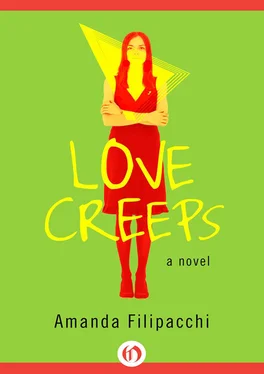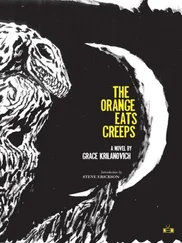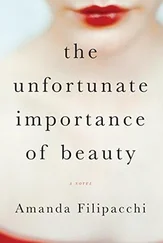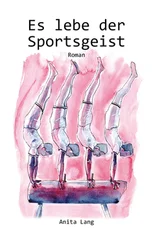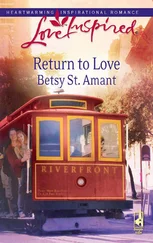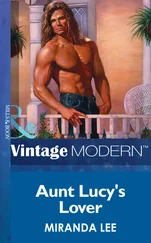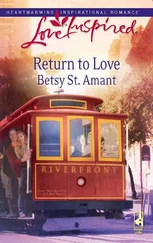“Shh,” Alan said.
“Tell me!” Roland said, again loudly.
“Damn you. I was in the ocean, lying on a floating raft, when I was five or six, and a woman helped me pet a mangofish. Are you happy?”
Roland’s eyes opened wide. He switched to sidestroke, staring at Alan. “A mangofish.”
“Yes, it’s a gentle fish that lets people pet it sometimes.”
“And did you pet the fish?”
“Yes.”
Alan, Roland, and Lynn reached the end of the pool, turned around, and began the next lap.
“What does a mangofish look like?” Roland asked.
“I didn’t see it. It doesn’t like to be seen.”
“But it likes to be petted. Hmm. What did it feel like?”
“The way you would imagine a fish to feel.”
“Which is?”
“Soft and slippery.”
“That woman didn’t, by any chance, say, ‘This is a perfect day for mangofish,’ did she?” Roland asked.
Alan blanched, and chills coursed through his body, causing him to lose track of the stroke pattern again. The water came up to his nose, and he flailed and doggie-paddled up to the edge. Lynn was grabbing him around the waist, pressing the length of her whole body against his. She did not promptly let go of him when he was holding on to the edge. He had to push her away and say, “That’s enough, I’m fine.”
Alan turned to Roland. “There is no way you could have known that. How did you know she said that?”
“Lucky guess, I guess,” Roland said, treading water using legs only. Alan was annoyed because treading water using legs only was a feat that was attained only in the most difficult class, the class Alan was dreaming to be in one day, the Lifeguard Training Pretest class. Alan knew Roland knew that and was showing off.
Roland said, “But listen, maybe one day you should tell a therapist that little story. Even though it’s a lovely memory, I’m sure a therapist would be able to whip up some explanation as to how it might be related to your avoidance of water.” Roland arched his back and did a backward somersault under the water.
When Roland came back up, Alan repeated, “How did you know the woman said that?”
Roland glanced at Lynn to see if she was impressed by his knowledge. His face sagged when he saw she was smiling at Alan beatifically.
“Relax,” he said to Alan. “I went to Harvard, remember? Nothing beats a good education.”
Alan blinked, awed by Roland’s vast and mysterious knowledge that had endowed him with such acute psychological insight that he was able to speculate as to what someone had said thirty years ago.
“I suggest you read a short story called, ‘A Perfect Day for Bananafish,’ by J. D. Salinger,” Roland said. “You might gain some insight into why you never learned how to swim. Then again you might not.”
“Yeah, whatever.” Alan carefully let go of the edge and resumed the breaststroke. Lynn and Roland flanked him like pilot fish.
The instructor told the class that the next week they would be learning how to turn over front to back to front, and how to perform deep-water bobs, and that in three weeks they might try some beginner synchronized figures.
Two days later, Lynn was hosting an art opening at her gallery, looking at her watch. She knew Alan’s yoga class finished at seven o’clock, and she wanted to be there when it ended, so that she could stalk him for a few hours.
At ten to seven, she walked over to Patricia, who was standing with a glass of white wine, talking to two artists. Lynn told her she was leaving.
“You can’t leave now,” Patricia said. “Look who just walked in.”
It was Aaron Golding, the senior curator of contemporary painting at the Met.
“I can, and I will,” Lynn said.
Patricia grabbed her arm hysterically. “Now Aggie just got here.”
“I don’t care,” Lynn said, yanking her arm away. She walked out of her crowded gallery, avoiding eye contact with Aggie Slinger, the president of the Museum of Modern Art, and a very wealthy collector herself.
A few months ago, Lynn would have considered any gallery owner who left her opening as Aggie arrived to be completely deranged. But now, Lynn ran to the gym and got there not a minute too soon. She followed Alan down the street. She checked behind her. Roland was following her.
Alan tried to ditch his stalkers before going to his beading class. Alan was improved, but not perfect; he still had his insecurities. Last semester he hadn’t wanted his girlfriend to know he was taking a beading class, and this semester he didn’t want her to know he was continuing his beading studies. Jessica, being a detective, knew everything he did, and when he gave her some odd, beaded necklaces and said he had bought them for her, she knew he had actually made them.
Alan thought he had succeeded in derailing his stalkers before arriving at his class, but he was wrong. They joined the class.
They all got immersed in the beading and were quiet. You could hear Roland, faintly humming the song, “Ne me quitte pas.” Finally, he said to Lynn, “I’d be a lot happier if you weren’t so obsessed with Alan. I read maps better than he does. Or rather, I can read them, and he can’t. I sing better. I swim better, or rather, he can’t. And I bead better.”
Alan didn’t say anything. He nobly continued stringing his inferior bracelet.
Roland asked him, “Why did you decide to take this class, anyway?”
“I thought I would enjoy it,” Alan said.
“It’s always about you, isn’t it?” Roland said. “You thought you would enjoy it. What about us? I just don’t understand why you can’t pick more fun things to do, out of consideration for us poor stalkers who follow you. I mean, you knew we’d follow you. You know we can’t help it. If you were truly considerate, you would consult us as to which activities we could all enjoy.”
“I’m enjoying all Alan’s classes,” Lynn said to Roland.
“I think Alan does it on purpose,” Roland said, dropping a paper clip. “He chooses deadly boring activities to torture me.”
Alan ignored them and tried to concentrate on his beads. He had a feeling he had already screwed up the pattern. It was one blue, one red, one white. Or was it one red, one blue, one white? He couldn’t remember the order.
The teacher took out some new beads, made of crystals. They were all the size of small peas, and she said each type of crystal had special metaphysical properties. She described those properties as she held each one up for the class to see.
“Citrine is sometimes called the ‘success’ stone. It strengthens your willpower and lessens your mood swings.” She then held up a pale pink bead and said, “You probably all know that rose quartz is the ‘love stone.’ Dumortierite enhances organizational abilities, self-discipline, orderliness. Amethyst,” she said, holding up a translucent purple bead, “has been called the ‘addicts’ stone,’ because of its metaphysical property of diminishing addictions. Calcite helps you if you have a sense of being lost in spirit and if you have memory problems. Golden topaz increases creativity. Peridot lessens jealousy. Sugilite, also known as luvulite, helps you deal with shock and disappointment. Tourmaline enhances happiness. As for tektites, they are a type of glassy mineral believed to be of extraterrestrial origin. They increase your wisdom.”
After only fifteen minutes of beading, Alan got irritated that Roland had hoarded all the creative beads — the golden topaz. Alan had only three of them. Roland had maybe forty. Alan watched as gorgeous beaded strings trickled from Roland’s fingers. And this was only his first semester. Alan tried to trade him the love beads for the creative beads. Roland declined.
Читать дальше
